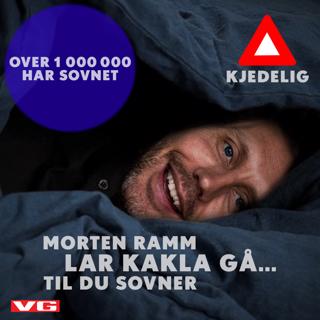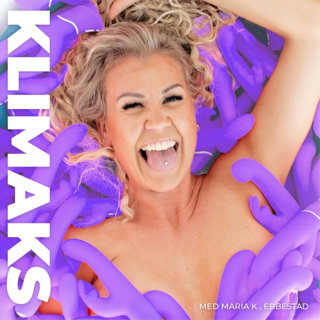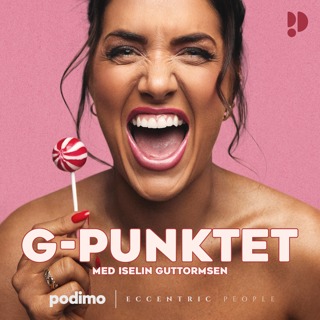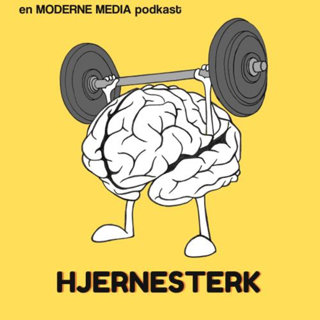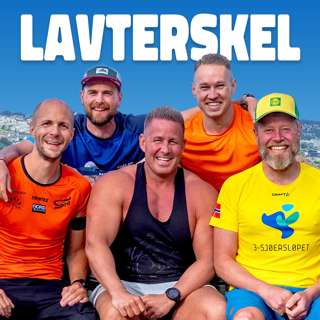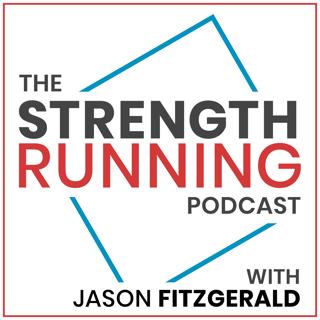
Body Care, Mobility, and Recovery with Alex Ellis
Alexandra Ellis is a polymath, having studied and worked in many different areas of exercise science, fitness, and coaching. She has a degree in Exercise Biology and has amassed nearly 1,000 hours of yoga training. Alex also has additional education in: Human Dissection (of course, this was the first thing we talked about) CrossFit Mobility Movement education with Sarah Court, DPT Regeneration Techniques workshop completion through NSCA As you can see, she has experiences that most coaches would envy (human dissection and NSCA training in particular). And I'm always looking for new perspectives that will help us improve our running. Alex delivers in a fun episode that highlights her knowledge about the body, movement, recovery, and injuries. In this conversation, we discuss: What did she learn from dissecting human cadavers? The physiological, biomechanical, and behavioral aspects of her Exercise Biology degree What she learned from CrossFit Mobility that will help runners How to incorporate a daily mobility practice into your life The pros and cons of different massage tools (foam rollers, lacrosse balls, and even Graston tools) How to prevent and treat rolled ankles What she means when she says, "If stretching ain't helping, start building strength." To celebrate our 100th episode, I invite you to take a short (3-question) survey to help us make it better. I really appreciate it.
24 Jun 201946min

Recovery 3 Ways - Acute, Training as Recovery, and Long-Term Rejuvenation
Today's episode is about recovery, and specifically recovery through three different perspectives: acute recovery - or what you do immediately after a hard workout or race, recovery as preparation - or what you do in training that makes recovery easier, and finally long-term recovery from season to season so you can avoid over-training and burning out. It's helpful to talk about recovery from different perspectives but also different time scales. Because recovery can happen in the micro and in the macro. And I think this is really important because we runners tend to get caught up in this one dimensional form of thinking about recovery where we're only focused on recovery after a run. It's what we do after a race, or long run, or workout, that defines recovery. But recovery is bigger than that and we'll be better runners if recovery is more 3-dimensional. Don't miss our free foam roller guide to expedite the recovery process at https://strengthrunning.com/roller/
18 Jun 201927min

Episode 98: Chris McClung of Rogue Running on Training Theory
Today's podcast episode features one of the lead coaches for Rogue Running, a massive running group in Austin, Texas. After discovering the Running Rogue podcast and learning more about the group, I instantly recognized Chris McClung as a thoughtful coach who truly "gets" training (he's not going to tell you to run less, run faster...). In this conversation, we focus on three key areas: How he learned to be a great coach The training theory and principles that influence his coaching The role of community and how that impacts your performance This episode is an excerpt from Team Strength Running, our group coaching program that connects you to me as your coach, a team of your peers, and a new monthly expert interview. Sign up here to get notified the next time we open!
6 Jun 201945min

Episode 97: Fast Kate Grace on Growing Up Fit, Staple Workouts, and Courage
Borrowing an idea from our mutual friend Nicole Antoinette, Kate has decided to choose courage over comfort when it comes to showing up and racing. When it comes to getting the most from our bodies, all of us have some trepidation about the discomfort of racing. It can be unpleasant and downright painful. But deciding to "go all in" and embrace that fear is the only way we can reach our potential. It's not an easy choice. Comfort is far easier: the comfort of sleeping in, not signing up for that big race, or not pushing hard during the final mile. But comfort can be the invisibility cloak that masks failure. After all, if we're only operating at 85%, are we really thriving? Today's conversation with Kate Grace covers many areas of training and mastering your inner psychology: How she handles workout anxiety and pre-race jitters What she does to stay in control of her thoughts during demanding speed workouts How she talks to herself in fearful situations (like standing on the starting line of a major championship)
28 Mai 201950min

Episode 96: Matt Fitzgerald on Suffering, Love, and why Life is a Marathon
You're about to listen to Strength Running's first live show with author Matt Fitzgerald. If you're not familiar with Matt, he's written more than 20 books about sports nutrition, endurance, running, and the marathon including my favorites, The Endurance Diet, Brain Training, Racing Weight, and Diet Cults. This was recorded in front of a live audience at the Tattered Cover bookstore in Denver, Colorado. Matt's latest book is a memoir called Life is a Marathon that chronicles his career as a coward when it comes to the suffering that inevitably accompanies endurance running. But he learns to overcome that suffering, and in doing so discovers the person he wants to become, for himself and for his wife Nataki who has severe bipolar disorder. It's a very different type of book about running that I highly recommend, especially if you want a moving read that isn't heavy on training jargon.
20 Mai 201928min

Episode 95: Peter Bromka on the Fear and Hope of the Marathon
I ran competitively against Peter while we were both in college. He was at Tufts University while I ran for Connecticut College. Bromka was faster. In college, he was consistently a Varsity runner for their competitive Division III cross country team. But while he was a very good college runner, I wouldn't say he was a standout athlete. Things started to change post-collegiately when Peter started running marathons. His first was 2:56 - a relatively pedestrian time by a former collegiate runner (one who was capable of running 25:xx for a 5-mile cross country course). Soon, he dropped his time to 2:47. And then 2:41. His progression of improvement over 26.2 miles is eye-popping. After that 2:41, he ran: 2:36 2:34 2:29 2:23 2:19 His fastest finish came last December at the 2018 California International Marathon. His official time - 2:19:40 - missed the Olympic Trials Qualifying standard by a mere 40 seconds. This progression gives Peter Bromka one of the most fascinating stories in marathon running today. It's rare. It's unique. And we just don't see DIII runners flirting with Olympic Trials Qualifying times very often! I brought Peter on the podcast to talk about this progression and the mental and physical adjustments he's had to make to continue improving. In this episode, we talk about: How did Peter's mindset about training and racing change as he got faster? What role does fear play in how you think about breaking certain time barriers? Did he ever think he had reached his physiological limit? What then? What is it about the Boston Marathon that makes it so special (and difficult!)? Peter Bromka is like a philosopher of running. You'll love hearing him wax poetic about the marathon distance and what it means to run it well.
9 Mai 20191h 10min

Episode 94: How to Avoid the Dark Side of Passion and Build a Sustainable Running Obsession
Brad Stulberg is a polymath whose first book with coach Steve Magness, Peak Performance, was one of my favorite reads from 2018. His work focuses on helping athletes, business executives, and other top performers improve their chances of success by work on: Defining a path for long-term progression Mental toughness Developing sustainable motivation and purpose How to get into a deep-focus "flow" state Building resilience Development of optimal routines His latest book is also coauthored by Steve Magness, titled The Passion Paradox: A Guide to Going All In, Finding Success, and Discovering the Benefits of an Unbalanced Life. In this conversation, we spend time focusing on the nuances of passion, obsession, and building interest in things that we like. His book is a defense of passion. It's a more nuanced, effective perspective on passion that acknowledges that it's hard to find, that it must be cultivated, and that too much of it can indeed be a bad thing.
2 Mai 201959min

Episode 93: 3:53 Miler Craig Engels on Training for Speed and his '80s-era Mustache
You might know Craig as the 2013 Pan-American Jr. Games 1500m champion or the 4th place finisher at the 2016 US Olympic Trials in the 1500m. More recently, Craig won the USATF indoor mile and set a blazing 3:53 mile PR. His list of personal bests is eye-popping: 800m: 1:46:03 Mile: 3:53.93 5k: 14:20.27 Craig is a fun guy to talk with because he doesn't take running too seriously. He's a fierce competitor but you'll also see how his running really took off in college when he was able to have fun with his team. (it's funny how you perform better when you're having more fun outside of training...) He also doesn't take himself too seriously, which I find incredibly refreshing. He rocks a mullet and an absolutely perfect 1980's style Burt Reynolds mustache. The RV only came after the mustache because he wanted to keep the 80's theme going. In this wide-ranging conversation, Jason and Craig talk about how his career exploded in college, his affinity for running fast, and why your next breakthrough might require you to take running less seriously.
24 Apr 201940min










